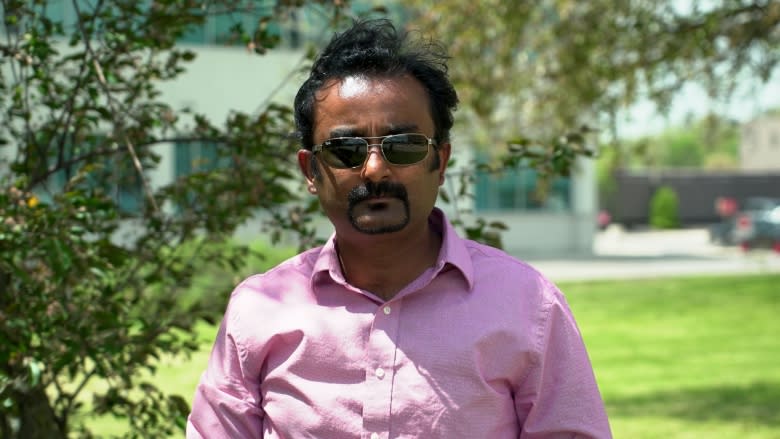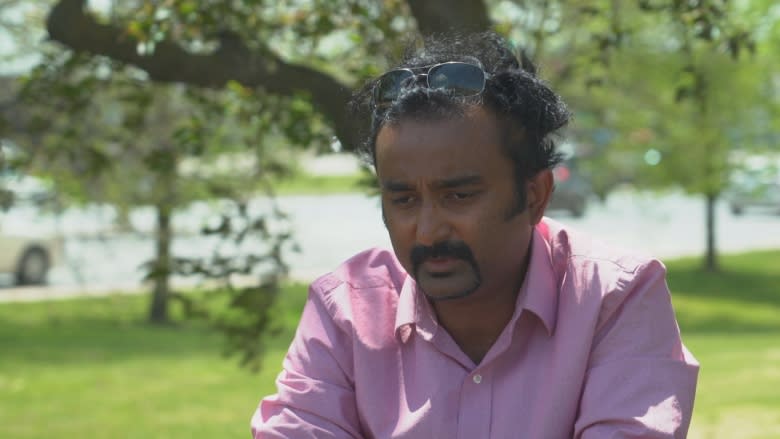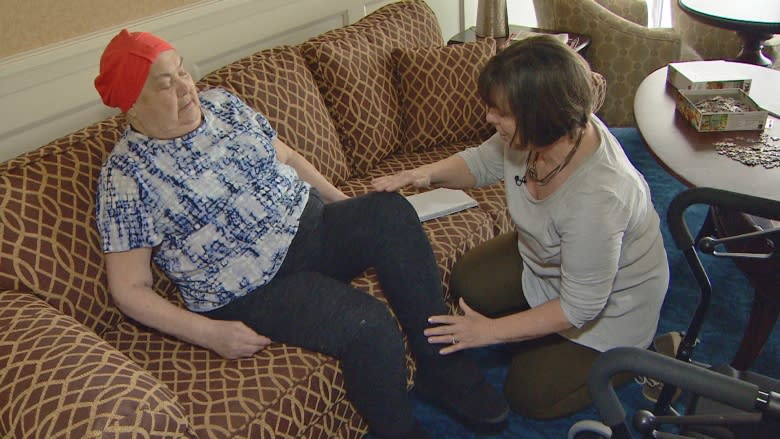Toronto health-care company billed Ontario, regional governments millions as employees allege missed payments
A Toronto-based health-care company that's been the subject of a number of employee complaints of late or non-payment has received millions in contracts from the provincial and regional governments.
Abira Healthcare — a designated physiotherapy service provider approved and funded by Ontario's Ministry of Health — is reportedly consistently delayed in paying some therapists hired to work in long-term care homes, a CBC Toronto investigation has found. Some complaints date back almost five years.
To provide its services, Abira — which is owned by Dani Diena and also operates as a numbered company: 2275518 Ontario Inc. — hires independent contractors throughout southwestern Ontario to carry out physiotherapy and other rehabilitation at care homes and clinics across the province. It also operates a physiotherapy clinic in north Toronto.
Since 2013, the company has received the following contracts from the province. Some of them continue until 2018:
- Ontario Ministry of Health: Approximately $641,784 (for physiotherapy sessions at its clinic billed at $312 each).
- Halton Region: $2,055,191.
- York Region: Approximately $1,393,734.
- Oxford County: Approximately $256,627 .
It has also bid on contracts in Hamilton, Niagara, Gravenhurst, Orillia, Durham, Simcoe and Elgin Counties.
Stressed and broke
Ebenezer Kirubanand has been a physiotherapist at Allendale, a long-term care facility in Milton, Ont., since 2006. As a contract worker, his routine is to provide therapy in the home and then invoice the service provider that holds the contract with the governing Halton Region.
During Abira's tenure with the Halton Region, Kirubanand saw his terms for remuneration change: from bi-weekly to end-of-the-month invoicing. He would then be expected to wait another 30 days for his cheque to arrive.
He said his pay was sometimes late and extended to 45 days.
"I just couldn't manage," Kirubanand said.
He and some of his fellow therapists contacted Diena to express concerns about timely payment, he said, but the issue persisted and worries kept him up at night.
"Sometimes [Diena's] cheques would bounce; I would have to pay that fee. I lost my banking privileges. ... Then there would be interest on my line of credit," he said, noting he needed the credit line because of the inconsistent pay.
Kirubanand said he felt caught in a stressful loop of "interest upon interest upon interest."
Abira held the contract with Halton Region until Sept. 30, 2016.
Contracts of this kind are not awarded to the lowest bidder but are assessed by weighted criteria, the Halton Region said in a statement. It added that vendors are paid in a timely manner with the expectation that they, in turn, will fulfil their contractual obligations. York Region and Oxford county said their processes are similar and that Abira was paid on time for contracts.
Kirubanand said he is still owed $11,200 for his last two months of work under that contract, so he took Abira to a small claims court in March.
"I was so scared," he said. "I don't know anything about suing. I don't know anything about the court system."
Kirubanand secured a settlement and a deputy judge ordered the company to pay the full amount within 30 days. But more than a month after the deadline, Kirubanand said he still hasn't been paid.
1st whistleblower
Sandra Starr, another a former contractor for Diena, also went to small claims court in May 2016 and reached a $13,000 settlement with 2275518 Ontario Inc. Starr was the first whistleblower to contact CBC Toronto.
Starr provided documents and copies of the non-sufficient funds (NSF) cheques issued by Abira and signed by Dani Diena in August 2015, for work conducted in Gravenhurst, Ont.
In a statement of defence, Abira Healthcare denied it had ever made late payments.
Since CBC Toronto shared her experience, Diena began proceedings to sue Starr for defamation. He also wrote to CBC Toronto to reiterate that intention.
More complaints
According to Ontario's Ministry of Labour, there have been 18 complaints under the Employment Standards Act about Abira or Dani Diena, with the majority relating to unpaid wages, totalling more than $50,000.
The numbered company was also a defendant in eight other small-claims cases filed between 2013 to 2016 related to contracts and rent. The outcome of those cases is unknown.
Debbie Branch, an occupational therapist and former contractor, said Diena's company owes her "just over $7,000" for six weeks of work conducted at the beginning of this year. She isn't pursuing legal recourse.
"He receives an invoice every day by fax or email," Branch said.
After 30 years of working full time as an occupational therapist, Branch decided to set out on her own as a contract worker last year. She said she was working 27 hours a month for Abira in care homes in Gravenhurst and Orillia, at a rate of $47 an hour.
Even with her first invoice, Branch said Abira was days late in paying her. After another delay and then a bounced cheque, Branch said she reached out to ask what was happening.
"I contacted Dani directly. He didn't respond to my calls. I emailed him," she said.
She eventually received a cheque from Rando Drugs, which Diena has previously told CBC Toronto he manages.
That cheque was held by her bank, she said, delaying her access to the money for about six weeks after the invoiced payment had been due.
Branch resigned via email at the beginning of February, promising to complete her patients' transfer of care and asking that Diena pay her the still-outstanding balances.
In subsequent emails, Branch reminded him of the overdue invoice. She said Diena responded with a threat to sue her, blaming the occupational therapist for Abira losing the contract at the homes where she worked.
"They wanted you gone. What did you do to upset them? Simple question," he wrote, not addressing the outstanding invoice in the ongoing correspondence.
Branch called Diena's comments are false, noting that she continues to work at two of the homes and now bills them directly.
She said she still hasn't been paid for her final six weeks with Abira.
CBC Toronto requested multiple interviews to discuss the specifics of these complaints with Diena, and his wife, Grace, who is the sole shareholder for the numbered company.
In one email, Diena offered to send the court paperwork regarding Starr's case and agreed to take part in an interview. He did not follow through, and his lawyer, Jerome Stanleigh, has since written CBC Toronto to decline interviews.
History of bankruptcy
Diena is no stranger to the courts.
In October 2012, the 64-year-old was declared bankrupt with liabilities of more than $10 million.
Diena's LinkedIn profile also listed him as president of Dedicated National Pharmacy from January 1987 to July 2010. In 2011, that business went into receivership, which took over more than $9 million in assets.
In 2014, Gemoscan Canada Inc., a food intolerance management company, started acquisition of 2275518 Ontario Inc. The company later stated the deal fell through because Abira didn't follow through with financial due diligence.
Ministry approval
According to a Health Ministry spokesperson, service providers like Abira were approved in 2013 after the province put out a call to assess credentials.
The Local Health Integration Network (LHIN) then reviewed the applications, based on criteria like quality of care, geographical considerations and financial accountability and records management practices, and provided a list of recommendations for which service providers should be approved.
The service providers are ultimately responsible for their own administrative practices, including timely payment.
"Under the ministry's [agreement] with Abira, the administration of the clinic, including management and payment of clinic human resources, is the responsibility of the clinic's management," spokesperson David Jensen said in a statement.
On Monday, Abira had job opportunities posted on Kijiji and Indeed for occupational therapists.





